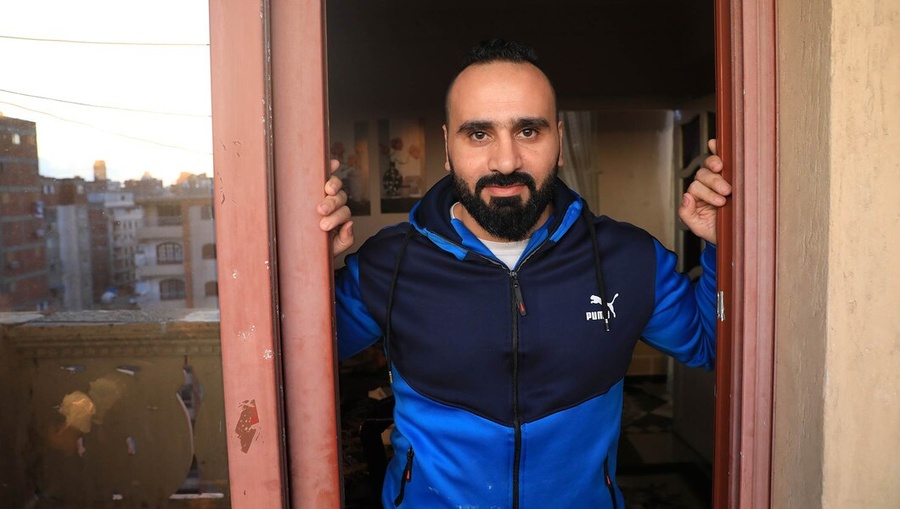Lausanne, Switzerland, June 2, 2020: Syrian Amir Al-Awad is grateful to wrestling. Even at his lowest moments, when grappling on a mat was far from his thoughts, the sport has remained ingrained inside.
Now he finds himself as one of 42 athletes in the IOC’s refugee scholarship programme and trying to win a place in the IOC’s Olympic Refugee Team for Tokyo 2020 next year.
“Wrestling makes you face challenges and, as a wrestler, I was taught to be resilient and confront life, no matter what,” explained Al-Awad, whose life was sent spinning by the outbreak of civil war in Syria in 2011.
“If I am thrown to the ground or hit the bottom I have to come up and start afresh.”
Obsessed with wrestling since he was nine years old, the former Asian and Arab champion and 18-time Syrian national champion has come to embody this ethos – none more so than when he started a new life in Egypt with his wife after fleeing Syria in fear.
Energised by the thought of sharing his passion with the disparate refugee community in Alexandria, Al-Awad and friends founded what has become the Syrian Sports Academy. Funded by the United Nations Refugee Agency, UNHCR, and other organisations, the 30-square-metre training hall provides scores of young refugees with a sporting home and, often, a sense of identity.
“The main purpose was to give the kids some training and physical activity and try to distract their minds from what had happened in their countries – using sports as a means to rehabilitate,” Al-Awad, 36, explained.
“When I see these kids doing something with their lives, being distracted from the atrocities of the war, I believe that sport has the power to elevate and give purpose in life,” he said. “Giving back to society is actually giving back to myself.”
His passion for wrestling also rekindled his own Olympic dream, and now he trains relentlessly either side of his full-time job as a chef and his part-time work as a coach.
“I want to be a role model for the entire community. If I was on the team it would give a message to the other refugees in my situation that anything can happen. Even if it is difficult at the moment, maybe one day it will clear.”
For full article, see: www.olympic.org


